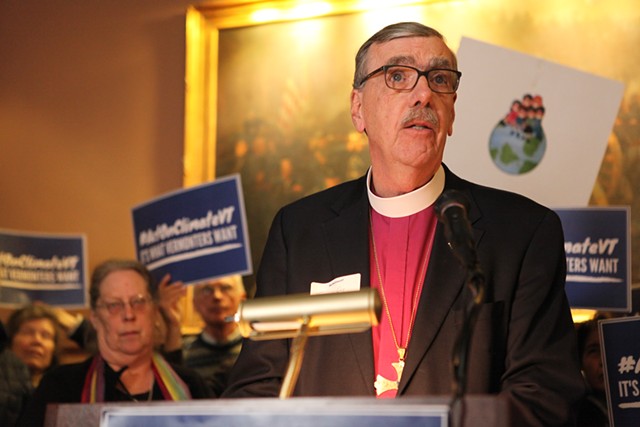
- Kevin McCallum
- Thomas Ely, retired bishop of the Episcopal Diocese of Vermont, speaking in support of the Global Warming Solutions Act
A sweeping climate change bill meant to force Vermont to hit its ambitious emission-reduction targets or else face lawsuits from citizens won preliminary approval in the House by a wide margin Thursday.
Legislators favored the Global Warming Solutions Act by a vote of 105 to 37 — a strong showing for a bill that Republican Gov. Phil Scott has warned would put the state in unnecessary legal jeopardy.
Supporters praised
H.688 as leverage to ensure that the state meets emission-reduction targets that it has missed for years.
“(The bill) creates a strong and effective path to cut pollution and will increase climate resilience for all of our communities,” said Majority Leader Jill Krowinski (D-Burlington).
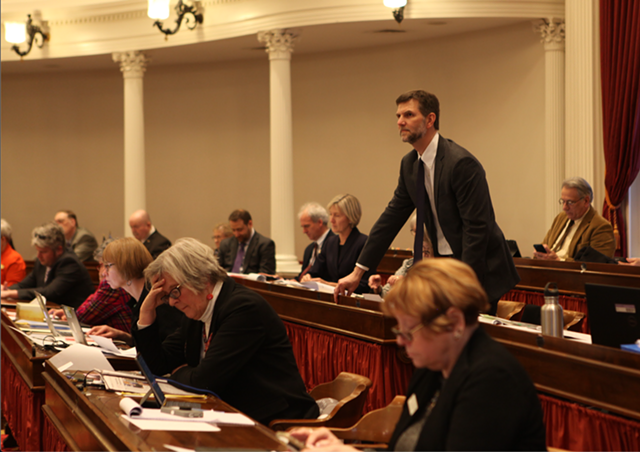
- Kevin McCallum
- Rep. Timothy Briglin (D-Thetford) addressing questions from his House colleagues
Some Republicans blasted the measure, saying it would hurt their constituents.
“I voted no because I will have no part of cheating my Northeast Kingdom constituents out of their hard-earned paychecks,” said Rep. Brian Smith (R- Derby).
Minority Leader Pattie McCoy (R-Poultney) said some Republicans who voted yes have serious reservations about the bill but are hoping the Senate will “massage” it into something they can support.
Democratic leaders have called the bill one of their top priorities this session, and it has enjoyed strong support from environmental organizations.
The bill would require the state to hit its climate-related emission-reduction targets or face lawsuits from citizens, much like the federal Clean Water Act allows Americans to sue those who pollute waterways.
The state would have to reduce its emissions to 26 percent below 2005 levels by 2025; 40 percent below 1990 levels by 2030; and 80 percent below 1990 levels by 2050.
The state has already committed to those goals, but they don’t have the force of law. In 2017, when President Donald Trump pulled out of the Paris Agreement on climate change, Scott and 23 other governors vowed to keep their states on track to reach the agreement’s goals.
The latest estimates show Vermont's emissions falling, but not fast enough to hit the 2025 target. Instead, the state is on a path for a 22 percent reduction from 2005 levels by 2026.
That gives House Energy and Technology Committee chair Timothy Briglin (D-Thetford) some confidence that the state’s goals, while ambitious, are achievable.
“I’m not going to say we’re going to meet them, but I think we have a pretty good shot," Briglin said.
The bill would create a 22-member Climate Council that would be responsible for ensuring target goals are met. Some legislators were hesitant to turn that responsibility over to a new body.
Some were also worried about what emission-reduction strategies or regulations could be spawned.
Rep. Jim Harrison (R-Chittenden) asked whether the Agency of Natural Resources could ban internal combustion engines in an effort to meet the goals.
Briglin said “the barriers would be significant” to such a regulation being passed, including possible violation of federal commerce rules. But he didn’t rule it out, either.
Under the bill, plaintiffs who sued Vermont over missed targets could not win damages, but the state could be forced to pay their legal costs.
Scott says he’s concerned the state could get sucked into costly legal battles, spending money that would be better put toward solutions such as weatherizing more homes and incentives for electric car purchases.
His budget address called for setting aside 25 percent of future budget surpluses to address climate change. But climate activists have said Scott’s plan isn’t bold enough for the scale of the crisis.
The bill would cost an estimated $972,000 over two years, mostly to fund new staff in the Agency of Natural Resources to track emissions.
Before the vote, members of religious groups urged legislators to pass the bill and other legislation addressing climate change.
“The crisis is real. The time for action is now. Please join us,” Rev. Thomas Ely, retired bishop of the Episcopal Diocese of Vermont, said during a Statehouse press conference.








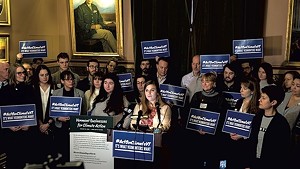
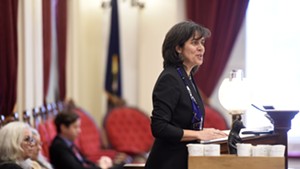
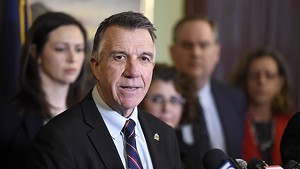





Comments (8)
Showing 1-8 of 8
Comments are closed.
From 2014-2020, Seven Days allowed readers to comment on all stories posted on our website. While we've appreciated the suggestions and insights, right now Seven Days is prioritizing our core mission — producing high-quality, responsible local journalism — over moderating online debates between readers.
To criticize, correct or praise our reporting, please send us a letter to the editor or send us a tip. We’ll check it out and report the results.
Online comments may return when we have better tech tools for managing them. Thanks for reading.